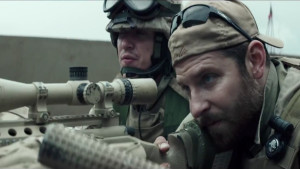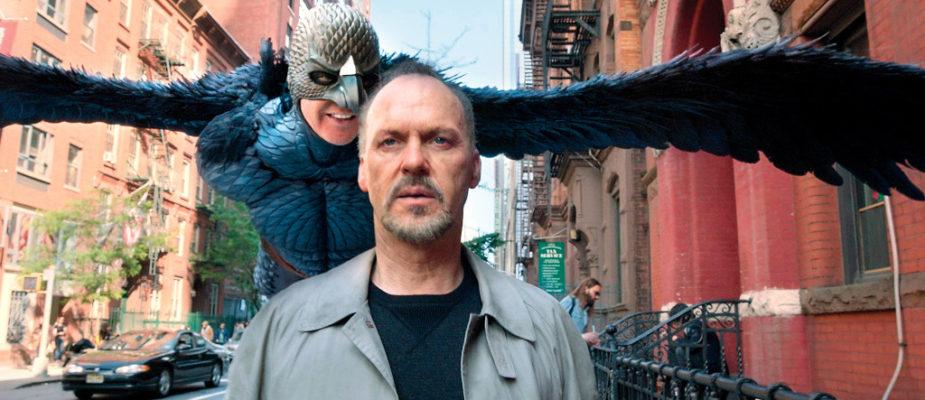In a field that included an experimental and deeply moving portrait of maturation made over an unprecedented twelve-year period (Boyhood), a summarizing achievement from the best director of his generation (The Grand Budapest Hotel), a startling, expressionistic new work that deftly translates feeling into action and editing (Whiplash), and a morally complex and honestly self-critical mega-hit about a man of his war-defined time, by one of Hollywood’s finest artists (American Sniper), leave it to the entertainment industry to celebrate itself at its most cynical and calculating (Birdman or (the Unexpected Virtue of Ignorance)). But, of course, we should expect no less of an industry that, let’s be clear, rarely gets its right, which rarely sees the truly essential accomplishments that American filmmakers still manage to churn out year after year after year. (In fact, I have already seen two near-great or great American movies in 2015, the mid-career Blackhat and Knight of Cups, and am not nearly deluded enough to think that the industry will recognize the overwhelming originality or stunning visual grace of either. Somewhere, some hack has already devised a craven way of telling Hollywood how great it is, which we will all be forced to see before it storms its way to multiple statuettes next February.) So, same as it ever was: the Academy chooses an altogether undeserving winner that will be quickly forgotten. But, at least this year we had some films to root for, and to feel passionate about and defensive of when the inevitable came to pass.
 While I’m on the subject of best picture, I would feel remiss were I not to finally say a word or two about the aforementioned American Sniper, which is very clearly the American public’s choice for the best film of 2014. (Sorry Hollywood, but this is a much smarter choice than the one you made Sunday night.) One of the best pieces of pure genre filmmaking in Clint Eastwood’s ever expanding late career body of work, American Sniper is perhaps more notable for once again engaging with the actor-director’s two career-defining roles, “Dirty” Harry Callahan and “The Man with No Name,” grafting both in this instance into his respect-filled portrait of American serviceman Chris Kyle. Eastwood gives us a Texas cowboy who takes to heart his role as protector (a key characterization in so many of the director’s films), before seeking justice for a fallen comrade. Thus becoming a variation on a vigilante, Kyle, in one of the film’s most conspicuous and Eastwoodian fictionalizations, endangers the entirety of his squadron in order to take the life of his principal rival, and the man who took the life of his friend. He succeeds of course, but not before his violence has serious consequences, thereby making this scene one of the more archetypally Eastwoodian in the director’s late corpus.
While I’m on the subject of best picture, I would feel remiss were I not to finally say a word or two about the aforementioned American Sniper, which is very clearly the American public’s choice for the best film of 2014. (Sorry Hollywood, but this is a much smarter choice than the one you made Sunday night.) One of the best pieces of pure genre filmmaking in Clint Eastwood’s ever expanding late career body of work, American Sniper is perhaps more notable for once again engaging with the actor-director’s two career-defining roles, “Dirty” Harry Callahan and “The Man with No Name,” grafting both in this instance into his respect-filled portrait of American serviceman Chris Kyle. Eastwood gives us a Texas cowboy who takes to heart his role as protector (a key characterization in so many of the director’s films), before seeking justice for a fallen comrade. Thus becoming a variation on a vigilante, Kyle, in one of the film’s most conspicuous and Eastwoodian fictionalizations, endangers the entirety of his squadron in order to take the life of his principal rival, and the man who took the life of his friend. He succeeds of course, but not before his violence has serious consequences, thereby making this scene one of the more archetypally Eastwoodian in the director’s late corpus.
American Sniper heroically avoids the trap of propaganda of which its detractors have been quick to accuse it, especially since it has become a genuine pop culture phenomenon. Told through the perspective of the American soldier, this is a work that celebrates Kyle’s heroism and particularly his sacrifice – which are ideological disqualifiers for some, no doubt. Yet, at the same time, this is also a work that highlights war’s terrible personal cost, both psychologically and physically; the latter, indeed, becomes especially evident in its humane depiction of the disfigured servicemen with whom Kyle will spend some time upon returning from Iraq. Both pro-soldier and anti-war, American Sniper is a work of considerable nuance, and likely the director’s best (along with 2011’s extremely undervalued J. Edgar) since the masterful Gran Torino (2008). Suffice it to say that American Sniper is a much surer bet to be remembered than Alejandro González Iñárritu’s crassly fashionable latest.
 One of this year’s more pleasant Academy surprises came in the Best Foreign Language nomination of Abderrahmane Sissako’s Timbuktu (2014), Mauritania’s first ever in the category. Screening Thursday, February 26th at 7:30 p.m. and Saturday, February 28th at 8 p.m., Timbuktu depicts the West African city’s brief 2012 takeover by Islamic organization Ansar Din. Following an opening set-piece that poetically links the regime’s rise to the destruction of indigenous African cultural artifacts, Sissako (Waiting for Happiness, Bamako) emphasizes the absurdities of an occupation where militants whip a young woman for singing, and force another to wear gloves while selling fish. (Both are background episodes that thematically reinforce the primary plot-line centering on an accidental homicide.) We likewise see an adulterous couple buried up to their necks in the sand, and, in the film’s most memorable and memorably surreal scene, we watch as a group of young men play structured soccer game without a ball – with the sport also being forbidden by Ansar Din. Timbuktu, not unlike American Sniper, helps to narrate the often dismal experience of early twenty-first lived experience, with an honesty and urgency missing from you know which. And it is achieved with an extraordinary visual eloquence that maximizes the film’s astonishing absurdities in as little as a single static overhead set-up.
One of this year’s more pleasant Academy surprises came in the Best Foreign Language nomination of Abderrahmane Sissako’s Timbuktu (2014), Mauritania’s first ever in the category. Screening Thursday, February 26th at 7:30 p.m. and Saturday, February 28th at 8 p.m., Timbuktu depicts the West African city’s brief 2012 takeover by Islamic organization Ansar Din. Following an opening set-piece that poetically links the regime’s rise to the destruction of indigenous African cultural artifacts, Sissako (Waiting for Happiness, Bamako) emphasizes the absurdities of an occupation where militants whip a young woman for singing, and force another to wear gloves while selling fish. (Both are background episodes that thematically reinforce the primary plot-line centering on an accidental homicide.) We likewise see an adulterous couple buried up to their necks in the sand, and, in the film’s most memorable and memorably surreal scene, we watch as a group of young men play structured soccer game without a ball – with the sport also being forbidden by Ansar Din. Timbuktu, not unlike American Sniper, helps to narrate the often dismal experience of early twenty-first lived experience, with an honesty and urgency missing from you know which. And it is achieved with an extraordinary visual eloquence that maximizes the film’s astonishing absurdities in as little as a single static overhead set-up.










